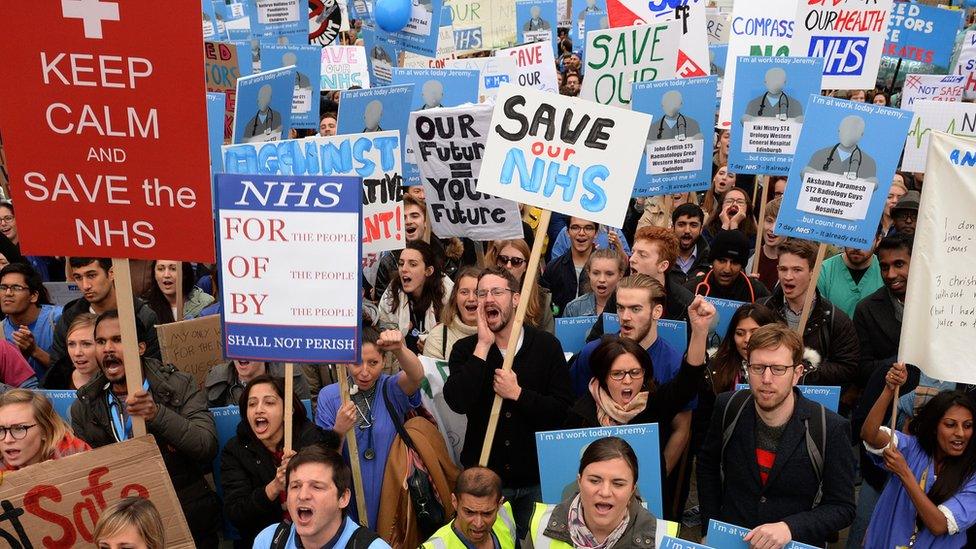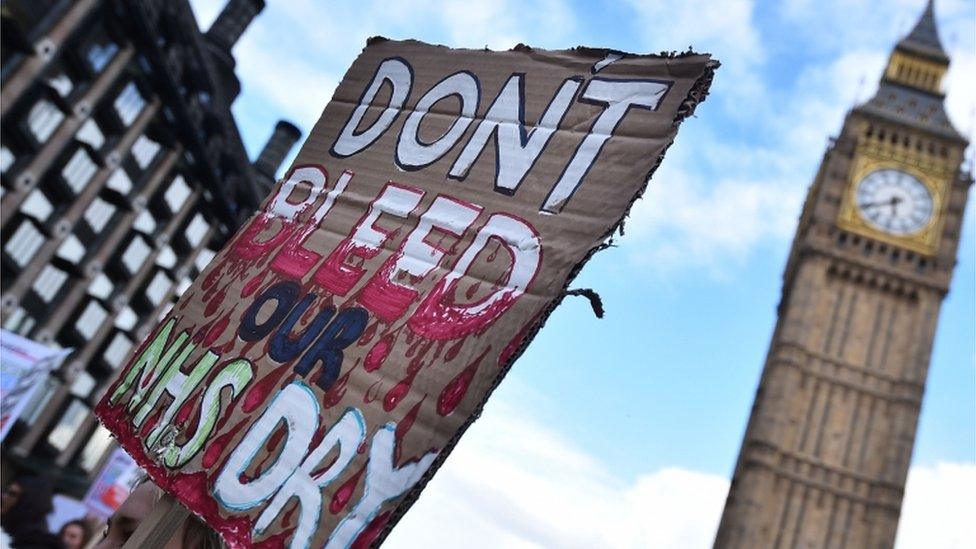Has Brexit ended junior doctors dispute?
- Published

Stop the press. In two days' time we will get another referendum result.
But it's not about the EU this time. It's the result of the junior doctors' vote on whether to accept their new contract in England.
If doctors vote yes in the referendum (a term the British Medical Association uses to describe the vote on the latest deal offered by ministers) it will mark the end of what was, until Brexit, one of the dominant domestic stories of the year.
Doctors have been out on strike six times - two of them all-out stoppages - over the terms and conditions that were on offer before it was announced in May that union and government negotiators had finally reached a deal.
But even if they vote no, it's quite possible it will not matter. The will to continue the fight has all but evaporated at the BMA.
The dispute has been painfully long - talks first broke down in autumn 2014 - and over the past year it has became increasingly bitter (there were even suggestions at one point that some hospitals were refusing to let Health Secretary Jeremy Hunt hold press events on their sites).
As you would expect, as the stalemate wore on there was a variety of opinion within the BMA about what steps to take - at times outright disagreements. Some of the junior doctors' leaders became exasperated with senior figures, particularly leader Dr Mark Porter, for not being gung-ho enough.
In fact, Dr Porter only narrowly survived a vote to replace him at last month's annual conference.

But, of course, it is not just about being battle-weary. The Brexit fall-out means that behind the scenes the BMA has now accepted its fight has to end.
Several influential voices in the organisation have told me there is nowhere to go regardless of the result - with one saying any more industrial action at the current time would be "just ridiculous" given what is happening in the country.
What is more, the junior doctor leader Dr Johann Malawana, who throughout the dispute has taken the fight to the government, has spent the lead-up to the vote touring the country, telling members what a good deal the May offer was.
If the vote goes the other way, his position would, in all likelihood, become untenable. Of course, a new leader could take over and pick up the fight. The mandate for strike action has not lapsed and the legal action that was suspended when the latest offer was made could be relaunched.
But by then the momentum will surely have slipped away forever. While the vote has been held, the NHS has been quietly continuing the process of implementing the new contract.
Some 6,000 medics fresh out of medical school are due to start on the new deal from August. Much of the rest of the workforce will follow over the coming year.
Whether doctors vote yes or no, the result of this referendum is, it seems, pretty academic.